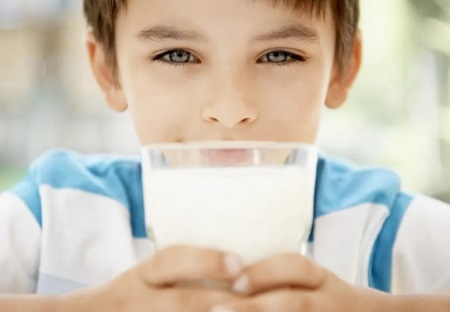Nikhil Prasad Fact checked by:Thailand Medical News Team Jun 14, 2024 10 months, 1 week, 5 days, 4 hours, 39 minutes ago
Dental News: Introduction: Milk and Dental Health
Milk is a staple in many diets, known for its rich supply of nutrients like calcium, phosphorus, and high-quality protein. It's often praised for its health benefits, including its role in bone health and disease prevention. However, its impact on dental health, particularly on cavities (dental caries), remains a topic of debate. This article delves into a recent study that explores the relationship between milk consumption and the prevalence of dental cavities in Korea.
 Does Drinking Milk Cause Cavities? Surprising Findings from Korean Study
The Study: Who, What, and How
Does Drinking Milk Cause Cavities? Surprising Findings from Korean Study
The Study: Who, What, and How
Researchers from the Catholic University of Korea analyzed data from the Korea National Health and Nutrition Examination Survey (2013-2015). They aimed to uncover whether there's a connection between how much milk people drink and the health of their teeth. The study covered in this
Dental News report, involved 15,581 participants, with detailed evaluations of their dietary habits, health status, and dental conditions.
Key Findings: Milk and Cavities
The study revealed some intriguing results:
-Increased Risk: Higher milk consumption was linked to a greater risk of developing dental cavities. The odds of having cavities were 1.65 times higher for those who drank more milk compared to those who drank less.
-Gender Differences: The link between milk and cavities was more pronounced in women, who had an 86% higher chance of developing cavities if they consumed a lot of milk. For men, the association was not statistically significant, although a similar trend was observed.
Understanding the Results: Why Might Milk Cause Cavities?
Milk contains lactose, a type of sugar that can be broken down by bacteria in the mouth to produce acids. These acids can erode tooth enamel and lead to cavities if proper oral hygiene is not maintained. While milk also has calcium and phosphorus, which can help strengthen teeth, the overall impact on dental health depends on various factors, including how often and how much milk is consumed.
Age and Oral Hygiene: Other Influential Factors
The study found that age also plays a role in the milk-cavities connection, especially among those aged 50 and above. Additionally, personal oral hygiene practices, such as regular tooth brushing, significantly affect the likelihood of developing cavities. Those who brush less frequently are at higher risk, regardless of their milk intake.
Dietary Recommendations: What Should You Do?
Given the findings, it's essential to balance milk consumption with good dental hygiene practices. Here are some tips:
-Moderation is Key: While milk is nutritious, consuming it in moderation can help reduce the risk of cavities.
&am
p;nbsp;
-Brush Regularly: Ensure you brush your teeth at least twice a day and consider brushing after consuming milk or other sugary foods.
-Regular Dental Check-ups: Visit your dentist regularly for check-ups and professional cleanings to keep your teeth healthy.
Supplementary Insights: The Science Behind the Study
Researchers used a variety of sophisticated techniques to gather and analyze data, including physical examinations, biochemical analyses, and detailed dietary surveys. They considered various factors such as age, gender, income level, and lifestyle habits to ensure a comprehensive understanding of the milk-cavities relationship.
Looking Ahead: Future Research Directions
While this study provides valuable insights, further research is needed to explore the long-term effects of milk consumption on dental health and to identify specific factors that can mitigate these risks. Future studies could also investigate the impact of different types of milk, such as whole, skim, or flavored milk, on dental health outcomes.
By staying informed and making mindful choices, you can maintain both your overall health and your dental well-being.
Conclusion: A Balanced Approach to Milk Consumption
This study highlights a potential risk associated with high milk consumption and dental cavities, especially for women. It underscores the importance of maintaining good oral hygiene and being mindful of dietary habits. By balancing milk intake with regular dental care, you can enjoy the health benefits of milk without compromising your dental health.
The study findings were published in the peer reviewed journal: Medicina.
https://www.mdpi.com/1648-9144/60/6/967
For the latest
Dental News, keep on logging to Thailand Medical News.
Read Also:
https://www.thailandmedical.news/news/diy-guide-for-checking-for-mouth-or-oral-cancer
https://www.thailandmedical.news/news/more-studies-are-showing-that-covid-19-can-cause-various-oral-health-issues-and-even-damage-your-gums-and-teeth
